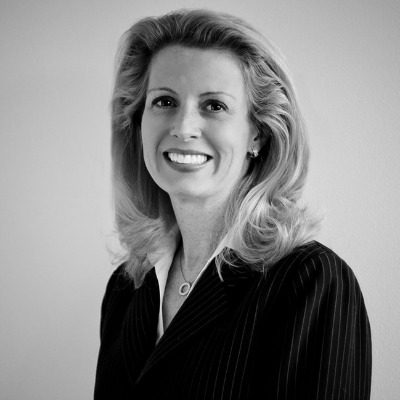
Marybeth Wootton, CEO of Berico Technologies, is among the finalists for the Northern Virginia Chamber of Commerce and Professional Services Council’s annual Greater Washington Government Contractor Awards in the Executive of the Year category up to $75 million. The winners will be announced at an awards program Nov. 5.
WashingtonExec spoke with Wootton about the idea of “The Struggle,” the value of being willing to hustle, and her growth as a leader.
WashingtonExec: What was a turning point or inflection point in your career?
Wootton: Coming to Berico to run this company after a career of working at very large companies in the federal and commercial sectors was definitely an inflection point. I had to radically shift my leadership style and expectations to think like an entrepreneur and not like a manager. As an executive in a global company, my job centered around delegation, oversight, risk avoidance and reporting. As the CEO of a smaller, highly technical company, it’s much more hands-on and we are capable of making different tradeoffs between short-term and long-term results.
I’ve gained a lot of technical depth and continue to learn from my team every day so that I can interact more effectively with our customers and partners. The aspect of “managing up,” which was so critical at a larger public company, has been replaced by true collaboration at all levels, and a much more customer-centric perspective. After many years of building my career based on promotions and titles, it’s been a lot of fun to wear many hats every day. It’s incredibly rewarding to see such a direct tie between our business growth and the impact to customers and employees.
WashingtonExec: What is the No. 1 business book that had the largest impact on your life or professional development?
Wootton: The book that had the right impact at the right time for me was “The Hard Thing About Hard Things” by Ben Horowitz. It’s a feel-good story about staying resilient even while experiencing roadblocks, adversity and near-failure that typically accompanies achieving anything great. Although this is written from the perspective of a Silicon Valley entrepreneur and investor, it had a lot of relevance as I read it in 2015. Still in the throws of sequestration, and running a highly innovative business in a budget-conscious environment that de-obligated most RDT&E expenditure, we faced that go-big-or-go-home decision point that Horowitz talks about in the chapter called “The Struggle.” Knowing that these ups and downs are universal was reassuring and gave me patience and courage to stay the course on the path we were on, continuing to build the technology-enabled brand we were creating (“The struggle is where greatness comes from”).
WashingtonExec: What advice do you have for aspiring leaders in the government contracting industry?
Wootton: Always act with integrity and represent your personal best. D.C. is a small town and whether you work at one company or another, your partners and colleagues will follow you through many different situations and phases of your career. Your competitor on one deal will be your critical partner on another. Patience and resilience are necessary if you want to create better outcomes and move the federal sector forward. Don’t subscribe to the norms that people will tell you can’t be overcome. Know that the choice to be committed to the federal sector is a calling, and the missions we serve are bigger than any one customer, executive or company.
WashingtonExec: What was your first job?
Wootton: My first job was waiting tables and tending bar across a very broad range of places in Massachusetts, from when I was 16 until my senior year at Harvard. Each summer during high school and college I would apply to multiple restaurants and ultimately select one job for breakfast/lunch and another for dinner. Between two restaurants, I typically worked 80 to 100 hours a week during the summer break and up to 40 hours a week while I was at Harvard as an undergrad.
WashingtonExec: Overall, how did that experience shape your career?
Wootton: Waiting tables and tending bar at a variety of restaurants gave me an appreciation for working with anyone on any terms. Tips are real-time feedback on your performance. If you want to walk home with more money in your pocket that night, you focus on the customer and handle every situation no matter how unusual. You are an individual performer that’s part of a bigger team. Everyone mattered — from the cook to the hostess, and the busboy to the dishwasher.
These jobs established my ability to multitask, handle pressure, negotiate and gave me a sense of humility. It’s a humbling experience to have your income dependent on the viewpoint of a hundred diners/drinkers each night — regardless of whether they are on a first date or having the worst day of their life.
When I went back to the Border Café in Harvard Square nearly 15 years later, I saw one of the bartenders I had worked with who was retiring that year. She remembered me, and when I told her I was CEO of a technology company in D.C., she said: “That’s awesome. I’m not surprised. You always had hustle.” That’s one of the finest professional compliments I’ve received.

